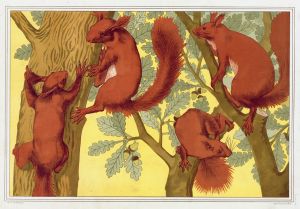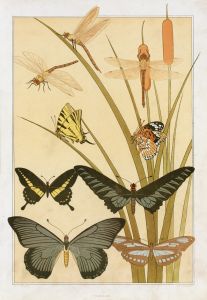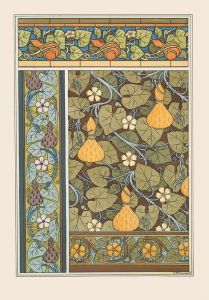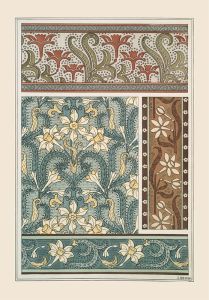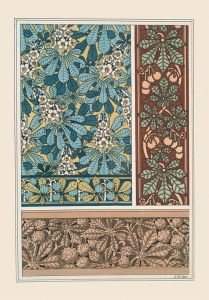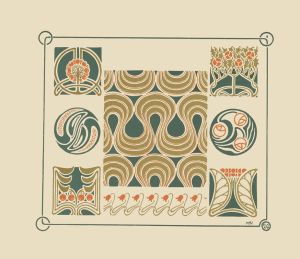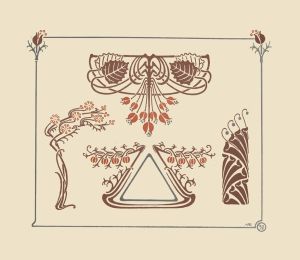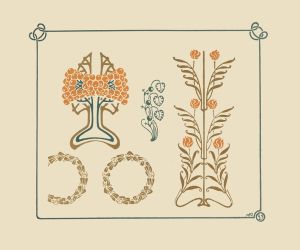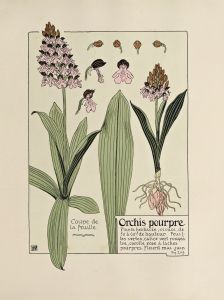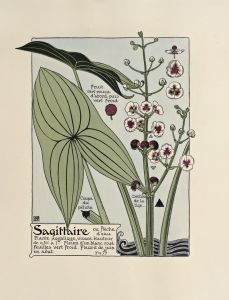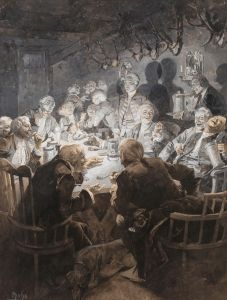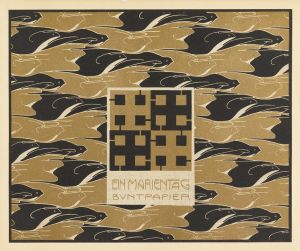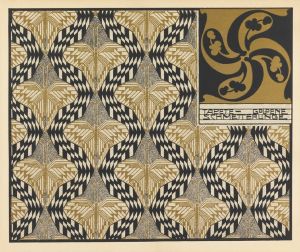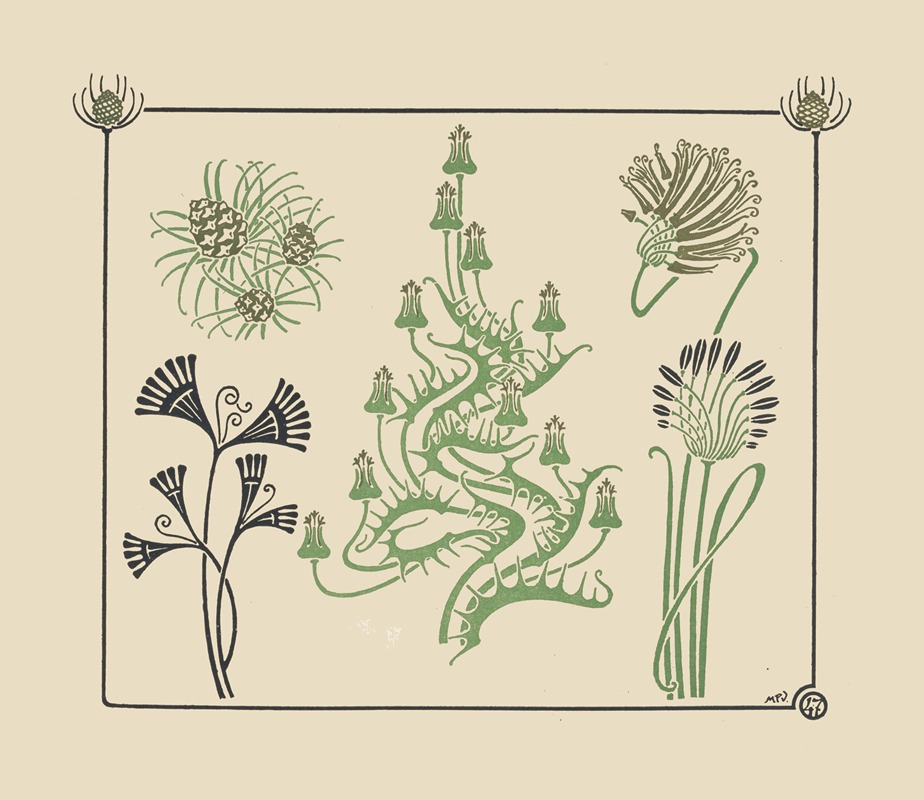
Abstract design based on flowers and pinecones
A hand-painted replica of Maurice Pillard Verneuil’s masterpiece Abstract design based on flowers and pinecones, meticulously crafted by professional artists to capture the true essence of the original. Each piece is created with museum-quality canvas and rare mineral pigments, carefully painted by experienced artists with delicate brushstrokes and rich, layered colors to perfectly recreate the texture of the original artwork. Unlike machine-printed reproductions, this hand-painted version brings the painting to life, infused with the artist’s emotions and skill in every stroke. Whether for personal collection or home decoration, it instantly elevates the artistic atmosphere of any space.
Maurice Pillard Verneuil (1869–1942) was a French artist and designer known for his contributions to the Art Nouveau movement. He specialized in decorative arts and was particularly recognized for his innovative use of natural forms, such as plants, flowers, and animals, in his designs. His works often combined intricate patterns with vibrant colors, reflecting the organic and flowing aesthetic characteristic of Art Nouveau.
The artwork Abstract design based on flowers and pinecones by Verneuil exemplifies his ability to stylize natural elements into decorative motifs. In this piece, Verneuil transforms flowers and pinecones into abstract, symmetrical patterns, emphasizing their geometric qualities while retaining their organic essence. The design likely served as a decorative panel or a template for applied arts, such as textiles, wallpapers, or ceramics, which were common applications of his work.
Verneuil was heavily influenced by Japanese art, particularly ukiyo-e prints, which introduced him to the concept of flattening perspective and focusing on bold, decorative compositions. This influence is evident in Abstract design based on flowers and pinecones, where the forms are stylized and arranged in a way that prioritizes aesthetic harmony over realistic representation. The use of nature as inspiration aligns with the broader Art Nouveau ethos, which sought to integrate art into everyday life by drawing from the natural world.
Throughout his career, Verneuil collaborated with other prominent artists and designers, including Eugène Grasset, and published several influential books on decorative arts. His publications, such as L'animal dans la décoration (1897) and Étude de la plante (1903), showcased his designs and served as resources for other artists and craftsmen. These works helped disseminate the principles of Art Nouveau and solidified Verneuil's reputation as a master of ornamental design.
While specific details about the creation and original purpose of Abstract design based on flowers and pinecones are not readily available, it is consistent with Verneuil's broader body of work, which sought to elevate decorative art through the innovative use of natural motifs. Today, his designs remain celebrated for their elegance, creativity, and contribution to the Art Nouveau movement.





